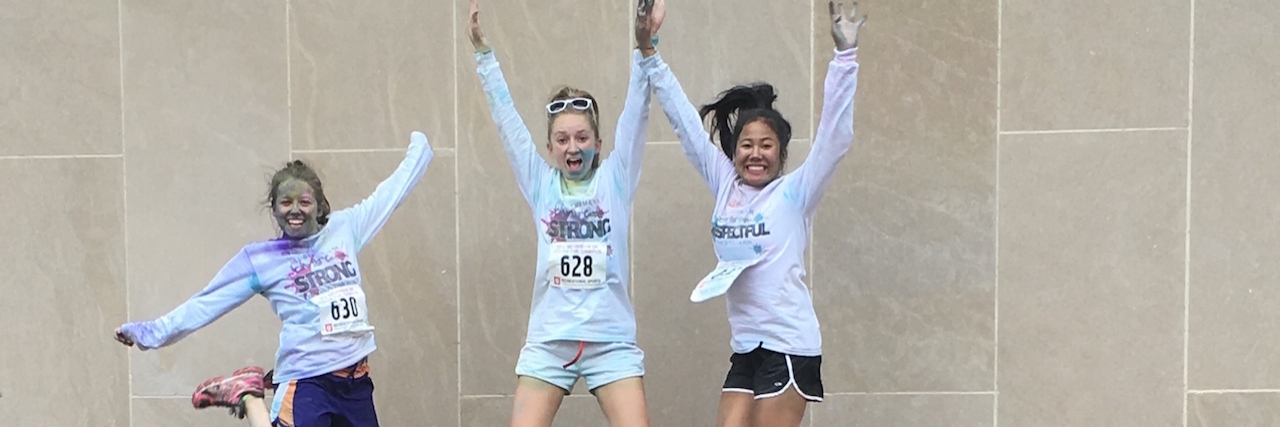It’s easy to fall down a self-deprecating hole. %%x0P92oRoOa%% makes me feel like I am not enough. I’ve been down that road before depressionsion sucks, too. And I can’t say one is worse than the other, because at the tim%%6G9uYJojqF%%pression (not diagnosed, but I know whatever I was, it wasn’t well) was rock bottom. I could sit and dwell on the negative aspects of myself for hours at a time, staying up late into the night with the neon glow of the internet as my companion, thinking all the time that “it could be so much worse, why am I not able to see that and just be happy?”
This is different — maybe worse, maybe not, but I know how hard it was to build myself back up from a place where I was convinced of how little I mattered to anyone. Being a chronic people-pleaser, my logic was already flawed. I did everything in my power to make sure I was not disliked, and yet I wondered if it would be better to be hated or disliked by people, because it would prove that I existed. Obviously there’s a disconnect here, and I have no idea why my mind was working as it was. Regardless, I didn’t hear gossip about myself, good or bad, because I was trapped in a vicious circle of trying to be so painfully average.
And now, in a twist of irony, I finally reached a place where I could fully accept, be and share myself, but now, so often, I cannot physically do so. I finally embraced being loud, bubbly, quirky, sarcastic and a secret bad-ass, but now I literally crumple to the floor. Coming home each evening from my internship this spring, I’d manage to get the key out of my Ford’s ignition and then fall forward onto the wheel for several minutes in relief, catching my breath from the physical concentration and exertion required to drive home. Climbing up the stairs just inside the entryway, it wasn’t uncommon for me to sit down halfway up, because I didn’t have the energy to go up the whole flight at once. I walk with a consistent limp, my knees buckling, head drooping, dropping things this way and that — but only when I’m alone (which I still don’t understand). My mind says, no one wants to see me sprawled out on the floor — it’s attention-seeking. No on wants to deal with me slumped halfway on my bed; why could I just not get on the damn bed? No one wants to see me just sitting on the floor in the middle of the bathroom because it’s easier to conserve that standing energy for later and do my makeup sitting down. I don’t want people to see me clawing my arms and wrists to stay awake, or staring listlessly at a wall for an hour while I’m paralyzed in another awkward position.
And yet, this is where I’m at.
Problem is, I don’t “look” sick. In the photo above, I’m the tiny one on the left hopping like a peppy cheerleader, after running a 5K. How does one go from that to taking multiple two-hour naps in a day? I’m an open, transparent person, and having an invisible illness makes me feel like a fraud. I’m smart, articulate, and inquisitive — with %%RZvfnyg6OU%%, whether I can blame it or not, I’ll stop mid-sentence while talking with someone, furrow my brow, and then concede defeat with a “What was I saying?” or “What did you just ask me?” Or I’ll find myself in a situation where two years ago, I would have struck up conversation with a stranger just because they looked interesting, and now I can feel my body grow heavy and my mind slowing down, forcing me to put full concentration on keeping upright, walking straight or picking something up. And the moment passes.
Writing, reading, running, playing with my energetic young cousins and spending time with the rest of my family — all things I love dearly, and yet have become overwhelming as I try to figure out if I have the energy (which also requires effort, it seems). Being spontaneous and going out for drinks or a random trip have been replaced by a need to stick to a consistent bedtime if I want to maximize my chances for a relatively decent next day. This could soon change. I’m hopeful, which is why I said screw the bedtime, I’m going to write. If it does change, I’ll need more comparisons to see if there’s a difference. While %%hdowRXOlxt%% may be everything I’m not and usually isolates me, I’m going to let this remind me that it doesn’t have to be everything I am.
Follow this journey on Rec. Sleep. Ride.
The Mighty is asking the following: What’s one thing people might not know about your experience with disability, disease or mental illness, and what would you say to teach them? Check out our Submit a Story page for more about our submission guidelines.

